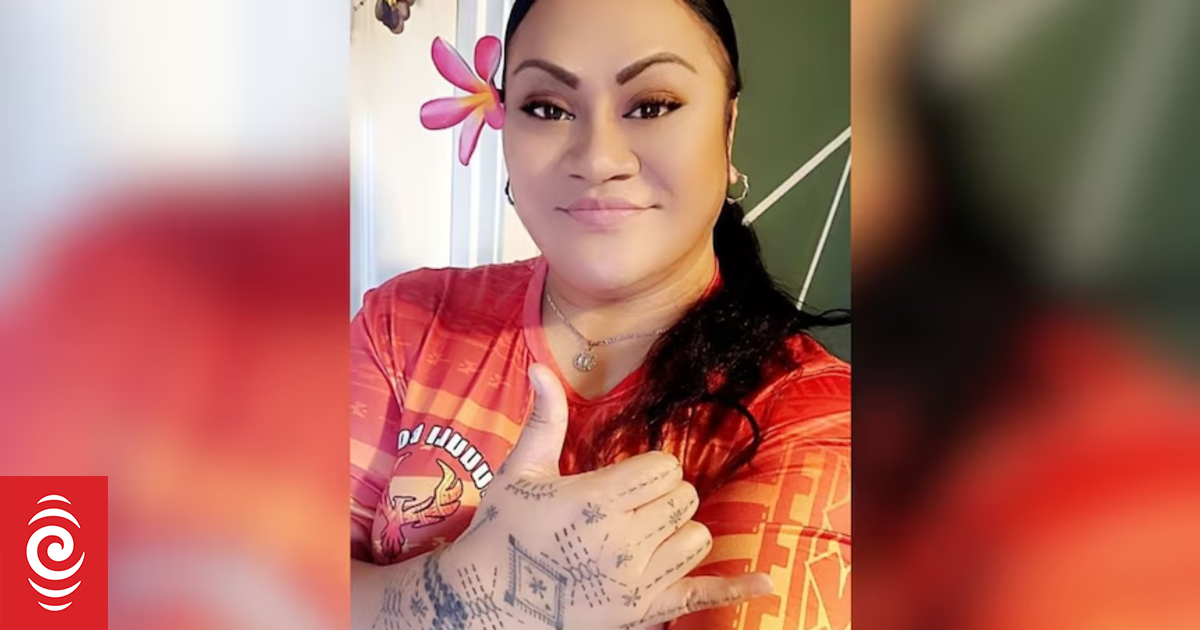
Tracy Sielega-Fili had worked for the company for nearly four years.
Photo: Supplied
A Samoan woman is calling for greater acceptance and awareness around cultural tattoos after she was terminated from her workplace due to her tualima, a traditional hand tattoo.
Samoan-American Tracy Sialega-Fili worked with Hawaiian Airlines for nearly four years but was terminated this month after getting the tatau in May to honour her father, who has been seriously ill.
The tualima is an important part of Samoan culture, signalling lineage and family. For the Samoan diaspora, it holds an even more special meaning – a reaffirmation of identity and a tribute to one’s ancestral homeland.
“The tualima is basically a tatau that we get,” she told Pacific Beat.
“It holds a lot of significance, a lot of importance. It could represent anything as far as your journey, your ancestors, where you came from.
“Mine in particular speaks on the journey my dad takes with his medical struggles, his health struggles, as well as my journey in taking care of him throughout his entire journey with his health.”
The dismissal has sparked public debate around cultural appropriation, particularly in Hawai’i, where Polynesian tattoos play an important role in native Hawaiian culture.
Standards are in place to ‘remain respectful’
In a statement, Hawaiian Airlines said it doesn’t “comment on ongoing cases involving individual employees” and that “those not in guest-facing positions, such as baggage handlers, cargo agents … are permitted to have visible tattoos that do not contain offensive language or images”.
“Employees who regularly interact with our guests, such as flight attendants, guest service agents, and pilots, must not have visible tattoos as part of uniform standards agreed to upon hiring,” the airline said.
“While we understand the importance and cultural significance of tattoos in Hawai’i, these standards are in place to ensure our company, which transports guests from around the world, remains respectful to those with cultural sensitivities to tattoos.
“We also regularly review these policies and will continue to do so as we integrate with Alaska Airlines.”
It was only recently that aircraft from Hawaiian Airlines were adorned with the image of the heavily tattooed character Maui, the demigod, from Moana.
“As modern-day voyagers, we pride ourselves in sharing our host culture and ensuring our guests are immersed in unparalleled comfort and breathtaking discovery as they travel with us across the Pacific Ocean,” the airline said in October when it unveiled its new Moana 2 design.
Sielega-Fili said she knew the airline’s policy when she started, and took precautions to cover her traditional tatau with gloves and makeup.
“Within the policy, it doesn’t state that you can’t necessarily have a tattoo, but it does state that it can’t be in the visible eye of the public,” she told Pacific Beat.
“I work for customer service, I had it covered with makeup, as well as gloves at times, but it was always covered.”
Small Hawaiian Airlines aircraft.
Sielega-Fili said she believed the airline made a mistake in their decision to dismiss her due to her traditional tualima.
“I do feel like I was wrongfully terminated first of all, and I do feel like there should be some kind of accommodation within this sort of policy that allows us as Polynesians to express our beliefs and our culture,” she said.
“If they can use our markings for their designs, for their aircraft, for our uniforms … I don’t see why we can’t wear them as markings on ourselves especially if it’s part of our beliefs and our culture.
“It’s fairness and equality for us Polynesians to be able to wear our honour and our heart of our culture on our body as much as they display it on our uniforms and aircrafts.
“This company is backed by the very people of our Island and since I have spoken up about this issue, I’ve received so many messages regarding Polynesians being denied a position in this company because of our tatau or being let go because of it as well.
“We are living in a new era where most Polynesians have these markings and if the company doesn’t make a change to their policy they are going to miss out on a whole lot of hard-working and dedicated people who define the very name of their company.”
– ABC

